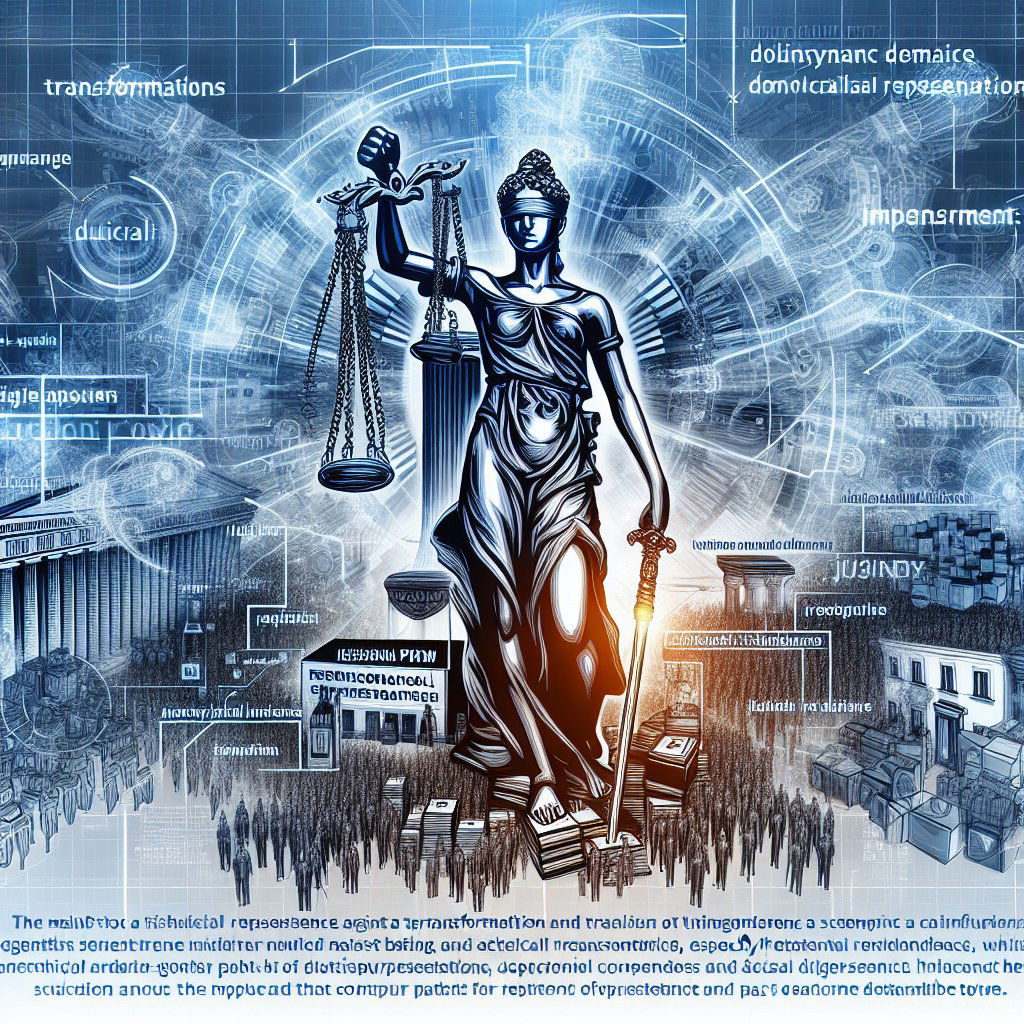Image created by AI
Judge John Hlophe's JSC Appointment Controversy Entrenched in Claims of WMC Interference
The potential appointment of Judge John Hlophe to the Judicial Service Commission (JSC) has sparked heated discourse among South African civil society groups. Their concerns point towards an overarching issue that resonates within the veins of the country’s socio-political realm – the quest for an independent judiciary free from external capital influence.
This narrative unfolded when several organisations sent an impassioned letter to Honourable Speaker Thoko Didiza, expressing fears that aforementioned international entities are manipulating local NGOs in order by pushing for agendas that could possibly undermine democracy and echo remnants of colonial dominance. The organisations behind the letter view Hlophe as a bulwark against what they consider to be the remnants of apartheid-era control structures within the economy and judiciary.
With rhetoric filled with strength and solidarity for transformation against "White Monopoly Capital," these groups stand united against what they believe is the commodification of South Africa’s judicial appointments. Their letter denounces several high-profile NGOs such as Freedom Under Law and the Helen Suzman Foundation, branding them as representatives of a Zionist and white supremacist ideology.
The critique extends towards opposition politicians, notably John Steenhuisen and Helen Zille, who are accused of lacking the credentials and moral grounding to contest Judge Hlophe's suitability. Nonetheless, these allegations ignite a broader conversation about democratic representation, economic disparity, and the nature of judicial appointments in a post-apartheid society.
While the coalitions vigorously support Judge Hlophe, citing his accomplishments and the symbolic need for leadership resistant to historical prejudices, the wider political sphere remains divided. Judge Hlophe is praised for his educational distinction and his contributions since the times of Nelson Mandela, but these accolades are now parallel to the scrutiny of contemporary judicial governance and the need for balanced representation.
As the situation evolves, Judge Hlophe’s appointment to the JSC becomes not just a matter of legal procedure but a touchstone for the ongoing transformation within the country’s dynamic socio-economic landscape. A litmus test is now before South Africa to reconcile the divergent forces within its democratic vanguard and the aspirations of its people for an equitable future.










